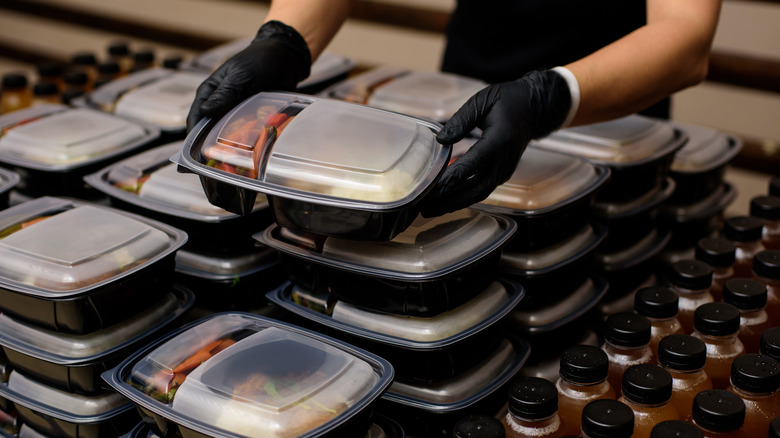Why The FDA Has Decided Not To Ban Phthalates In Food Packaging
As the public learns more about the chemicals that the Environmental Defense Fund says find their way into our diet via the packaging and equipment used on our foods, people have started taking steps to live healthier, cleaner lives. Stainless steel water bottles are replacing plastic containers, reusable food-safe storage materials are used instead of cellophane, and fresh foods are preferred over packaged fare. When the U.S. Food and Drug Administration (FDA) recently decided not to ban all the dangerous chemicals used in some food packaging, people wondered why the agency seemed less concerned than some consumers.
According to the Food Packaging Forum, phthalates are a group of chemicals commonly found in packaging and equipment used on food products. These dangerous chemicals are linked with reproductive and fertility issues, developmental problems, and health concerns like obesity. From fast-food containers to plastic wrap, food packaging is thought to be one of the ways phthalates get into our food supply. While there is scientific data linking phthalates with certain health risks, there is less specific safety data regarding packaging materials.
The FDA was required to reconsider its stance and reassess the risk levels of phthalates found in food packaging after three groups submitted food additive petitions. The agency amended its food additive regulations addressed by one petition but denied a citizen petition and separate food additive petition submitted by special interest groups.
The FDA seeks more scientific data before banning certain phthalates
The FDA issued a ban on 23 phthalates and two other separate chemical substances used in food contact applications in response to a food additive petition submitted by the Flexible Vinyl Alliance. The agency noted that the revoked phthalates are not used in the food industry any longer. After that ironic move, the agency went on to deny two separate petitions citing a lack of scientific data and improper grouping of the chemicals in question.
The Hill says that despite the known health risks that phthalates pose to the human body, the FDA couldn't warrant any action based on the scientific evidence provided to them regarding the ability of phthalates to move from packaging materials into food. The FDA also denied a separate petition on a technicality, stating that the petition grouped 28 phthalates into one class and failed to provide sufficient evidence of health risks.
Organizations supporting the prohibition of phthalates in food additive materials were outraged by the FDA's limited ban that only affected chemicals that have already been discontinued in the industry. Organizations that supported the petitions deem the agency's actions reckless and hazardous to public health. The FDA currently issued a request for more use and safety information regarding the remaining phthalates still approved for use.

